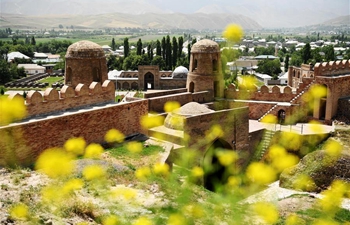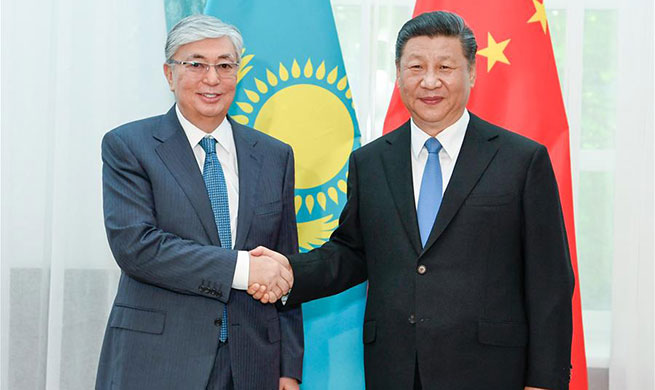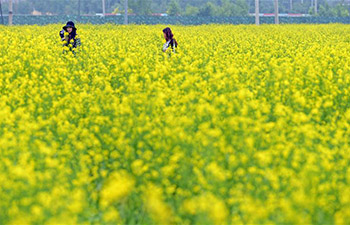ADDIS ABABA, June 14 (Xinhua) -- The UN Economic Commission for Africa (ECA) on Friday urged African countries to tackle discrimination and violence against people with albinism as the world marked albinism awareness creation day.
The ECA made the urgent call amid the commemoration of International Albinism Awareness Day, emphasizing the need to recognize, celebrate and stand in solidarity with persons with albinism in Africa and beyond.
"Persons with albinism in Africa often face severe forms of discrimination and violence," the ECA said in a statement issued on Friday.
"In a region where most of the population is relatively dark-skinned, the greater contrast in the degree of pigmentation draws attention to people with albinism, making them more vulnerable."
The ECA, which noted Albinism as a rare, non-contagious, genetically inherited condition present at birth, stressed that it should not be considered as a negative quality to discriminate people as it "found in both sexes, regardless of ethnicity, in all countries of the world."
According to the ECA, while numbers vary, it is estimated that in North America and Europe one-in-every 17,000 to 20,000 people have some form of albinism.
"The condition is much more prevalent in sub-Saharan Africa, with estimates of one-in-1,400 people being affected in Tanzania and as high as one-in-1,000 reported for populations in Zimbabwe and other ethnic groups in Southern Africa," an ECA statement read.
Persons with albinism also face discrimination due to their skin color as they are often subject to "multiple and intersecting discrimination on the grounds of both disability and color," it was noted.
"Since 2010, there have been around 700 cases of attacks and killings of persons with albinism in 28 countries in Sub-Saharan Africa, and those are only the reported cases," the statement read.
The ECA further emphasized the need to ensure the right to healthcare services for people with albinism in the African continent.
Noting that a lack of pigmentation, or melanin, in the hair, skin and eyes, often causes vulnerability to the sun and bright lights, usually leaving people with albinism visually impaired and prone to developing skin cancer, the ECA called for ensuring healthcare services for people with albinism.
According to figures from the UN, in some countries a majority of those persons with albinism die from skin cancer between the ages of 30 and 40.
"Although highly preventable when their right to health is maintained, these measures-including access to regular health checks, sunscreen, sunglasses and sun-protective clothing-are unavailable or inaccessible to them in a significant number of countries," the ECA said.
According to the UN children's fund, people affected by albinism are often visually impaired and need special protection against the sun as they often develop skin cancer and suffer from social stigmatization.
The ECA also noted that people with albinism "have been and are among those left furthest behind" in the realm of development measures.
It also stressed the need to strengthen efforts in bringing people with albinism in the political sphere, saying that they "are often invisible in social and political arenas."
The global community commemorates the International Albinism Awareness Day on June 13, as an awareness creation day to tackle the hurdles and challenges people with albinism encounter to their human rights, ranging from stigma and discrimination, to barriers in health and education.













